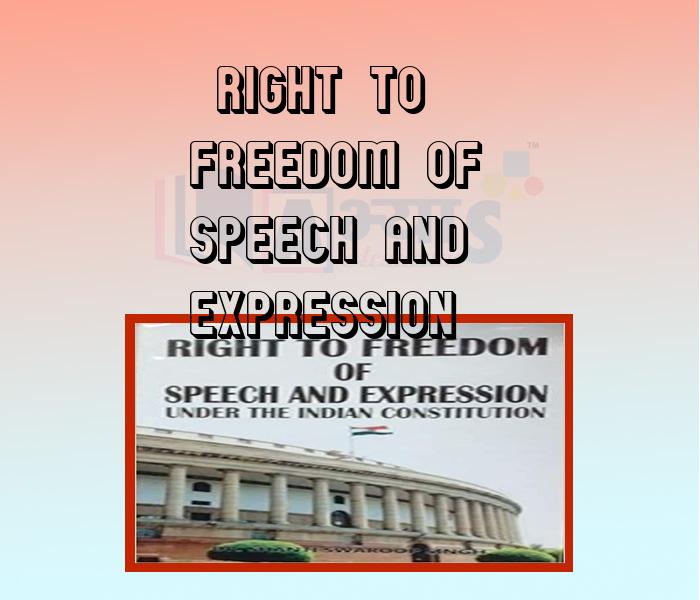Right To Freedom Of Speech And Expression










Right To Freedom Of Speech And Expression
Right To Freedom Of Speech And Expression:
The Constitution of India contains the right to freedom, given in articles 19, 20, 21 and 22, with the view of guaranteeing individual rights that were considered vital by the framers of the Constitution.
The right to freedom in Article 19 (1) guarantees the following six freedoms:
Which of the following are correct : (a) Article 370 of the Indian Constitution restricts citizens from other Indian states and Kashmiri women who marry men from other states from purchasing land or property in Jammu and Kashmir. (b) Freedom to practice any profession or to carry on any occupation, trade or business on which the State may impose reasonable restrictions in the interest of the general public. | |||
| Right Option : C | |||
| View Explanation | |||
Which of the following fundamental rights is not available to foreign nationals ? | |||
| Right Option : B | |||
| View Explanation | |||
According to _____________________, of the Indian Constitution no one can be awarded punishment which is more than what the law of the land prescribes at that time. | |||
| Right Option : C | |||
| View Explanation | |||
Students / Parents Reviews [10]
My experience was very good with Abhyas academy. I am studying here from 6th class and I am satisfied by its results in my life. I improved a lot here ahead of school syllabus.

Ayan Ghosh
8thBeing a parent, I saw my daughter improvement in her studies by seeing a good result in all day to day compititive exam TMO, NSO, IEO etc and as well as studies. I have got a fruitful result from my daughter.

Prisha Gupta
8thI have spent a wonderful time in Abhyas academy. It has made my reasoning more apt, English more stronger and Maths an interesting subject for me. It has given me a habbit of self studying

Yatharthi Sharma
10thMy experience with Abhyas academy is very good. I did not think that my every subject coming here will be so strong. The main thing is that the online tests had made me learn here more things.

Hiya Gupta
8thAbhyas Methodology is very good. It is based on according to student and each child manages accordingly to its properly. Methodology has improved the abilities of students to shine them in future.

Manish Kumar
10thIt was a good experience with Abhyas Academy. I even faced problems in starting but slowly and steadily overcomed. Especially reasoning classes helped me a lot.

Cheshta
10thMy experience with Abhyas is very good. I have learnt many things here like vedic maths and reasoning also. Teachers here first take our doubts and then there are assignments to verify our weak points.

Shivam Rana
7thIt has a great methodology. Students here can get analysis to their test quickly.We can learn easily through PPTs and the testing methods are good. We know that where we have to practice

Barkha Arora
10thAbhyas is a complete education Institute. Here extreme care is taken by teacher with the help of regular exam. Extra classes also conducted by the institute, if the student is weak.

Om Umang
10thIt was good as the experience because as we had come here we had been improved in a such envirnment created here.Extra is taught which is beneficial for future.
